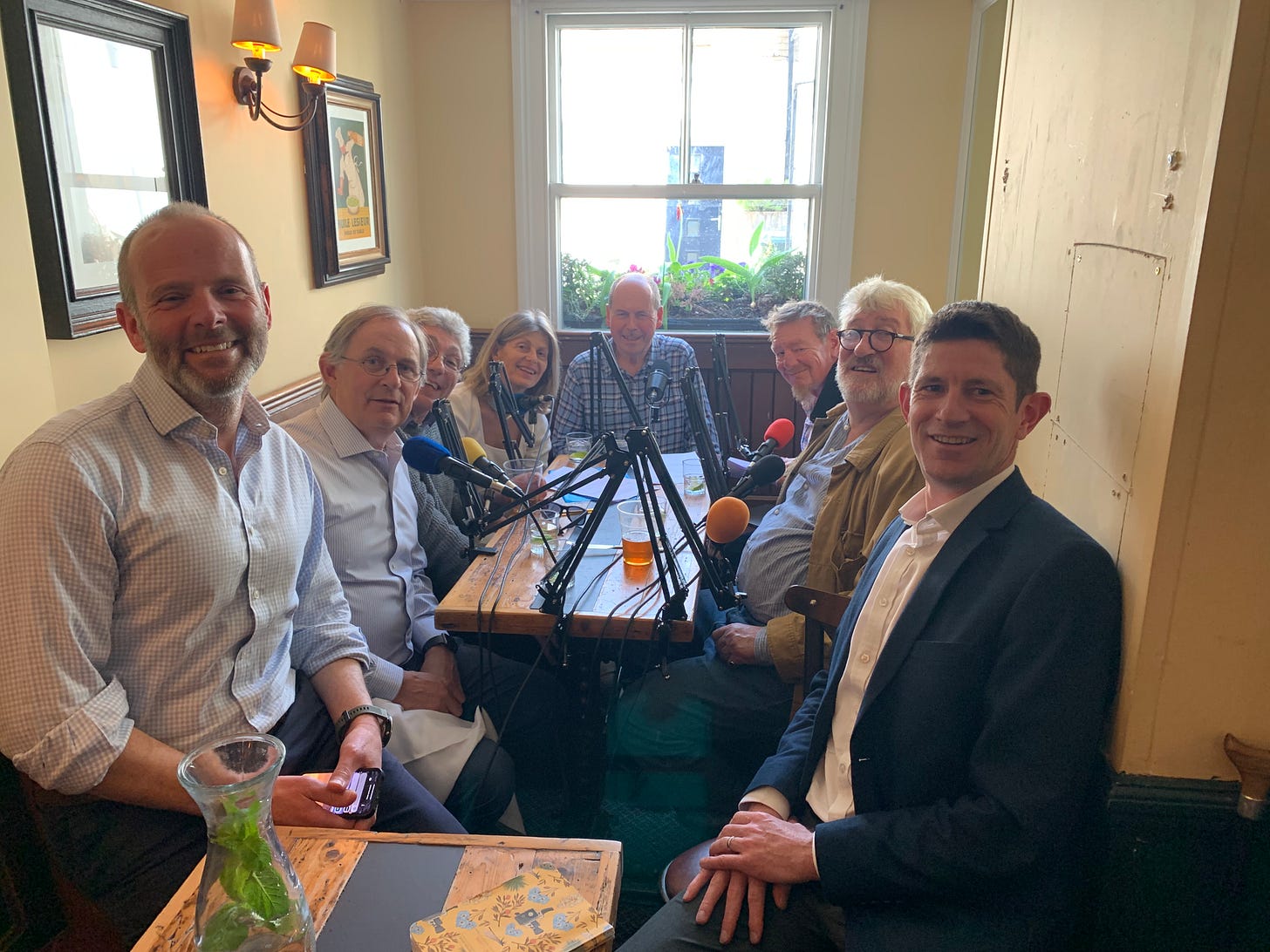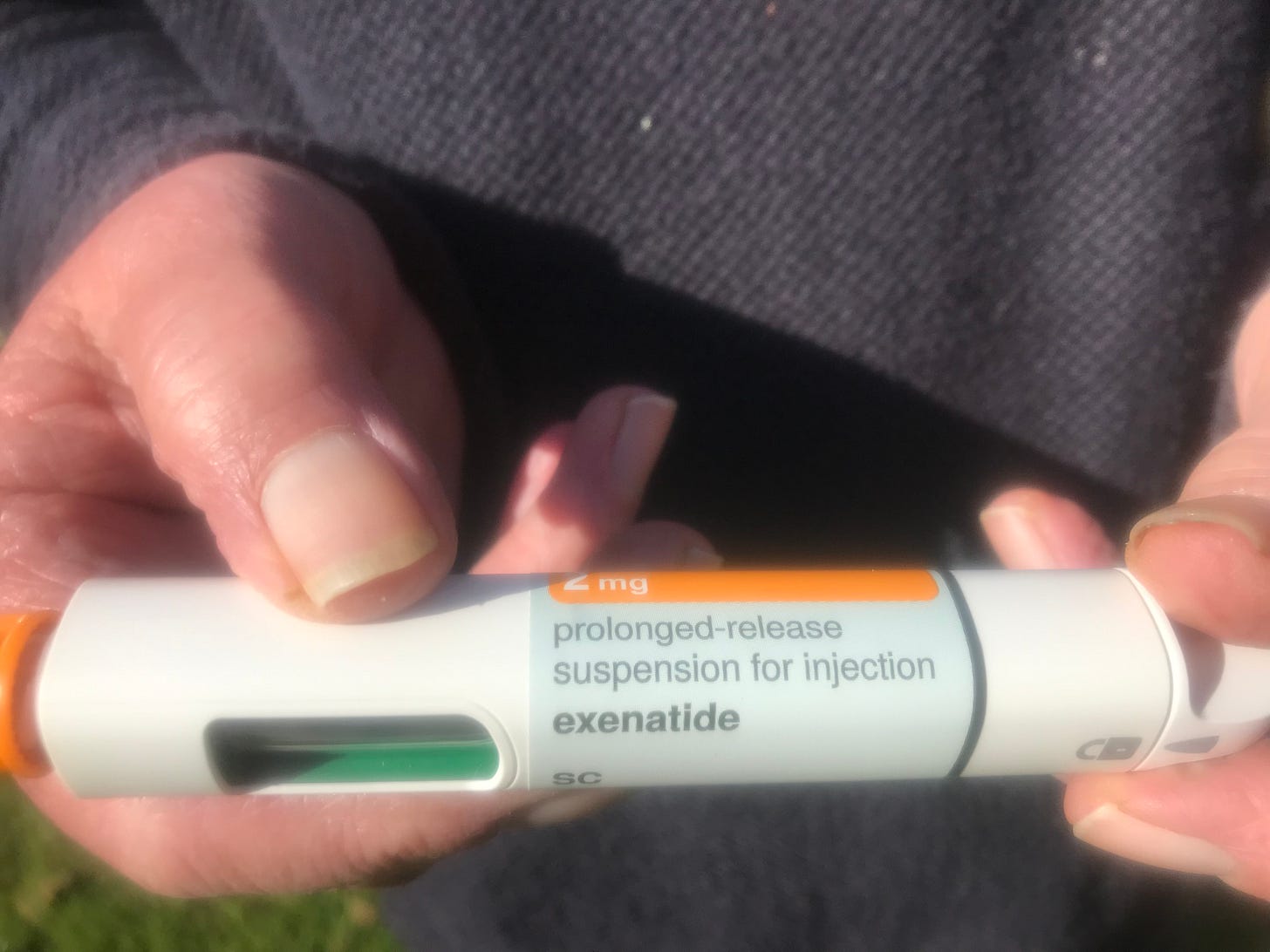Movers and Shakers:The Cure
This week’s edition of the Movers and Shakers podcast asks the big question - how close are we to a cure for Parkinson’s? It’s fair to say that many “Parkies” have grown quite cynical about promises of a breakthrough - that miracle drug that always seems to be five years away.
And before we interrogate our two guests, the Movers are not in particularly optimistic mood - Jeremy Paxman tells us we are “in God’s waiting room”, Mark Mardell doesn’t expect a cure in his lifetime pointing out “if you don't know what causes it… I don't know how you deal with it.”
But then top neurologist Professor Tom Foltynie and Cure Parkinson’s chief Will Cook give us an awful lot to chew on with brilliant overviews of the state of research and the funding for it. First of all we want a definition of “cure”. The duo tell us the aim is to “stop, slow or reverse” the progression of Parkinson’s, something none of the current symptom masking drugs can do. But I really like Tom’s definition: “To me a cure is being able to slow the rate of progression sufficiently, so as you're indistinguishable from other people who are just ageing gracefully.”
But the professor also takes us through the best current theory about what is going on in the brains of people with Parkinson’s, which focuses on the presence of excessive amounts of a protein called alpha-synuclein. Then we zero in on two of the drugs which are currently among the best hopes for cleaning up the brain.
Both Ambroxol and Exenatide are repurposed drugs - Ambroxol is a simple cough medicine, Exenatide is a diabetes drug - which show promise in fighting Parkinson’s. But what Professor Foltynie says about the link between Parkinson’s and diabetes shocks Mark:
“If you've got both diabetes and Parkinson's, then it makes your Parkinson's rate of decline far, far quicker. It's a far more malignant disease. Understanding that means that if we can address the processes which help diabetes, we may also be able to help the rate of progression of Parkinson's in people who don't have diabetes.”
Mark is diabetic - and at first what he hears from the Professor seems like really bad news. But then he sees the positive side - while anyone who hasn’t got diabetes will have to wait until Exenatide has come successfully through its Phase 3 trial to get the drug, he can get it prescribed right now, can’t he?
A few weeks after this episode was recorded Mark, after discussions with his GP, switched from his existing diabetes drug to Exenatide.
We then start talking about Ambroxol, wondering why the rest of us shouldn’t get hold of the cough mixture if it might turn out to be the Parkinson’s wonder drug. After all we know that it is safe. But Tom Foltynie urges us to be patient:
“The important thing is that we need to get the trials done to find out the answers. There are dozens of different drugs that are already being used in people that we know are relatively safe, but we don't know what they do for Parkinson's, and if they do slow down the rate of progression, or if they could even make matters worse.”
The encouraging thing is that there now seems to be a wave of cash behind these trials, some of it from the UK charity Cure Parkinson’s. But we ask its chief executive Will Cook whether the relatively small sums it raises - £7m last year - can really make a difference: “We like to say we punch above our weight,” he says. “Our footprint is small, but we think that our shadow or our influence over the world is great. We've put £16 million into clinical trials and preclinical research since we started, the vast majority of that has been in the last seven years. But a conservative estimate from those £16 million is that another £100 million from other international funders has gone to the trials and the clinical projects that we fund.”
Will Cook gave up his lucrative career as a corporate lawyer to take over the running of Cure Parkinson’s when his friend the charity’s inspirational founder Tom Isaacs died, and his passion about this project stands out: “As we understand it, there's only six public, known in the world, phase three clinical trials, potentially for disease modification, and we're behind two. But it's not enough. Until we get a cure, none of us are satisfied. That's why I gave up my career to do this.”
Both of our guests are cautious about forecasting how soon a cure might arrive. Will talks about walking the tightrope between hope and hype, but points out that we should have the results for the Exenatide trial next year and the. Ambroxol trial soon after. “Our mantra is only invest in drugs which could slow, stop, or reverse in the clinic within five years.”
Ah, that five year time horizon again. But by the end of the episode our two experts have achieved a miracle - they have cheered Jeremy up. “I have been inspired,” he says."I’ve been very impressed indeed.”
Don’t forget….
You can email us at feedback@moversandshakerspodcast.com
Our Instagram account is @moversandshakerspod
Join our Facebook group here: https://www.facebook.com/groups/146780564990635
And our Twitter account is: @moversand6
If you want to support Parkinson’s research please donate to Cure Parkinson’s or Parkinson’s UK.


